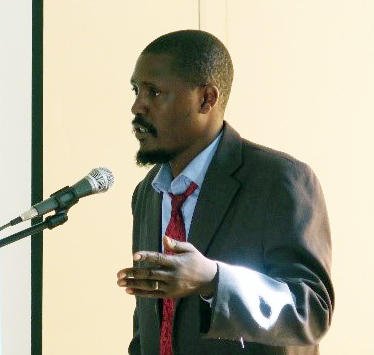
The United Nations Conference on Trade and Development (UNCTAD), in partnership with the Ministry of Industry, Trade and Tourism (MoITT), has convened a one and a half day workshop on the links between agricultural trade and sustainable development, within the framework of the project entitled “Trade and agricultural policies to support small-scale farmers and strengthen food security”, which is being implemented by UNCTAD since 2016.
The objective of the workshop is dual. First, generate knowledge and raise awareness and understanding of stakeholders about the social and environmental effects of structural transformation in trade-driven agriculture. Second, to increase the capacities of policy makers and other stakeholders to integrate knowledge and tools in the planning and implementation of trade policy, to take advantage of trade for sustainable development in rural areas, taking into account that commercial integration should not only promote economic growth, but also address socio-economic concerns such as poverty reduction, food security, gender equality and environmental sustainability. The underlying objective is to achieve economic, environmental and social objectives in a balanced and inclusive manner, by making trade policy an integral part of the National Strategies for Sustainable Development.
 All three studied crops – sunflower, soya and groundnuts – are oil crops, which are prioritized as future export crops by Malawi’s National Export Strategy in addition to main export crops such as tobacco, sugar, tea and cotton. Given Malawi’s vulnerability to sugar and tobacco control measures that other countries may implement for public health reasons, oilseeds present a solid base for trade-led agricultural policies with the aim to improve social as well as environmental sustainability, and ultimately increase food security. The study Harnessing Agricultural Trade for Sustainable Development has combined economic analysis with the agricultural evaluation of these three sectors. While it is recognized that growing demand for these products has the potential to provide benefits to remote farmers, the missing link between global markets and local production chains, as well as a number of both country-wide and sector-specific constraints, must be improved to be sustainable over time and benefit peasant communities. The analysis also recommends a set of policy measures required for Malawi to build on its strengths, seize opportunities and limit its exposure to threats present in the market. This workshop will examine the proposed recommendations and analyze the paths to follow in terms of political action and monitoring.
All three studied crops – sunflower, soya and groundnuts – are oil crops, which are prioritized as future export crops by Malawi’s National Export Strategy in addition to main export crops such as tobacco, sugar, tea and cotton. Given Malawi’s vulnerability to sugar and tobacco control measures that other countries may implement for public health reasons, oilseeds present a solid base for trade-led agricultural policies with the aim to improve social as well as environmental sustainability, and ultimately increase food security. The study Harnessing Agricultural Trade for Sustainable Development has combined economic analysis with the agricultural evaluation of these three sectors. While it is recognized that growing demand for these products has the potential to provide benefits to remote farmers, the missing link between global markets and local production chains, as well as a number of both country-wide and sector-specific constraints, must be improved to be sustainable over time and benefit peasant communities. The analysis also recommends a set of policy measures required for Malawi to build on its strengths, seize opportunities and limit its exposure to threats present in the market. This workshop will examine the proposed recommendations and analyze the paths to follow in terms of political action and monitoring.
The more immediate objectives of the workshop are first, to facilitate the exchange of views among relevant stakeholders on the implementation of the issues raised to inform the study; and second, develop ways to move forward, through an action plan for the future implementation of the recommendations of the workshop.




